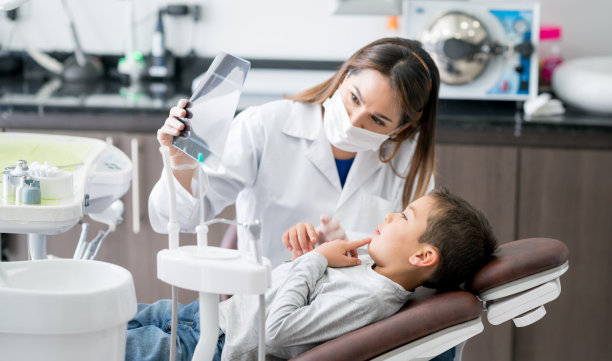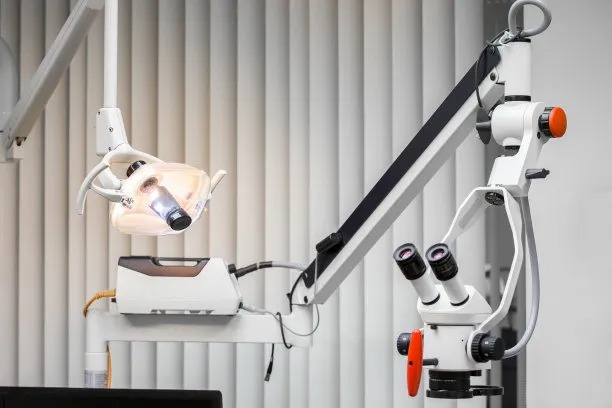Summary: Dental fillings serve as crucial components in maintaining oral health, particularly when it comes to treating cavities and preventing further decay. However, taking the correct precautions before and after receiving a dental filling can significantly impact the effectiveness of the procedure and the overall oral wellness of the patient. This article outlines essential precautions to consider prior to undergoing the filling procedure, recommended post-treatment care, the importance of communication with your dentist, and advice on follow-up visits. By embracing these practices, individuals can ensure their dental fillings contribute positively to their long-term oral health.
1. Precautions to Take Before the Filling

Before you head to the dentist for a filling, it鈥檚 paramount to understand your specific dental needs. Make a list of any symptoms you may have experienced, such as tooth sensitivity or pain. This will help the dentist diagnose the issue more effectively. Additionally, knowing what type of filling material you prefer can aid in the decision-making process. You may choose from various options such as composite resin, amalgam, or ceramic materials.
Moreover, it is crucial to review your medical history with your dentist. Inform them about any allergies, existing medical conditions, or medications you are currently taking. This information is vital as certain medications may affect how your body reacts to anesthesia used during the procedure.
Lastly, it is advisable to have your dental insurance information ready. Be clear on what your plan covers regarding fillings, which could help minimize financial stress post-appointment. Preparation in this area can set a positive tone for your dental visit.
2. Recommended Post-Treatment Care
After receiving a dental filling, it is essential to follow specific care guidelines to ensure the best outcome. Initially, allow yourself some time to recover from the numbing agents administered during the procedure. It鈥檚 advised to avoid eating until the anesthesia wears off to prevent accidentally biting your tongue or cheek.
Maintain a routine of good oral hygiene after the procedure. This includes brushing twice a day and flossing daily to keep the filling and surrounding teeth clean. Avoid sticky or hard foods for at least 24 hours post-treatment to allow the filling to set properly.
In the days following your filling, be attentive to any pain or discomfort. If the sensitivity does not subside or if you experience severe pain, contact your dentist. Swift action can help rectify any complications that may arise.
3. Importance of Communication with Your Dentist
Effective communication with your dentist plays a significant role in your oral health journey. Make your dentist aware of your concerns regarding the filling procedure. This includes discussing your anxiety levels and any fears you may have, which could affect how you respond during treatment.
Furthermore, clarifying any misconceptions about dental fillings can ease your mind. Ask your dentist about the procedure, the materials used, and what you can expect in terms of durability and care. This open dialogue enhances trust and makes for a more comfortable experience.
Post-procedure, keep the lines of communication open. Reporting your recovery progress allows your dentist to monitor the success of the filling and address any emerging issues promptly. Maintaining this relationship is vital for ongoing oral health.
4. Follow-Up Visits for Oral Health
After getting a dental filling, never underestimate the importance of follow-up visits. Regular dental check-ups are crucial to ensure that your fillings remain intact and effective. Routine examinations allow your dentist to identify any new cavities or issues that may require attention.
Additionally, these visits provide an opportunity for professional cleaning, which is essential for keeping your mouth healthy and preventing future decay. Cleanings help remove plaque and tartar that regular brushing might miss, thus contributing to overall oral health.
Moreover, with each visit, add to the conversation about your dental hygiene habits. Discuss your routine, dietary choices, and any concerns to receive personalized advice that will enhance your oral care strategy. These proactive discussions can significantly contribute to maintaining your fillings and overall dental health.
Summary:
In conclusion, being proactive about your dental care can set the stage for effective and lasting fillings. From properly preparing before the procedure to taking care of your fillings post-treatment, the precautions discussed are invaluable. Maintaining communication with your dentist and attending follow-up visits further ensures that your dental health remains optimal. Adhering to these practices not only enhances the lifespan of your fillings but also elevates your overall oral health.
This article is compiled by Vickong Dental and the content is for reference only.
Vickong Dental
Vickong Dental is a large medical group established in Hong Kong in 2008 by professors from well-known medical universities in Guangdong and Hong Kong, as well as medical doctors from key national '985' universities (including Master's supervisors and senior professors). The chain of branches brings together expert dentists with PhDs and Master's degrees from Hong Kong and Mainland China, committed to providing high-quality dental treatment.
"Vickong Dental Practices the University Motto of 'Healing and Serving Society,' with a Stable Operation for Sixteen Years. It Has Been honored with Hong Kong Enterprise Leaders's Choice,' and is a Global Trusted Implant Center for the Nobel Implant System. Recommended by Hong Kong Metro Broadcast and Guangdong Television, it Serves Customers from Over Thirty Countries and Regions, Gaining the Trust and Favor of Citizens from the Guangdong-Hong Kong-Macau Greater Bay Area and Surrounding Cities.

Thousands of customers' unanimous praise
The most recognized and highly recommended dental service by customers in the Guangdong-Hong Kong-Macau Greater Bay Area
We Ensure You Receive Detailed Care and Attention Here
Hong Kong standards, Shenzhen prices, Your Trusted English-speaking dentists

Vickong Dental Medical-Grade Instrument Disinfection Process
Vickong Dental Medical-Grade Instrument Disinfection Process

Vickong Dental Chain: A Warm and Comfortable Environment for Treatment






Appointment Hours

Q&A
Why choose Vickong Dental?
Vickong Dental practices the university motto 「Medicine to Benefit Society」, with each branch bringing together highly qualified dentists with doctoral and master’s degrees from Hong Kong and the Mainland, and has maintained seventeen years of steady operation。Recipient of 「2024 Hong Kong Enterprise Leaders Brand」, 「2025 Hong Kong Enterprise Leaders Brand」, a Nobel Biocare Global Trusted Implant Center, and a brand recommended by Metro Radio Hong Kong and Guangdong TV。
To date, we have served customers from more than thirty countries and regions,earning exceptionally high word-of-mouth recognition and trusted recommendations from residents across the Guangdong-Hong Kong-Macao Greater Bay Area and surrounding cities
We have eight major branches in Zhuhai、Shenzhen,and a consultation and service assurance center in Hong Kong,so you can book a free consultation at any time for any questions,which is very reassuring.
If I do not accept the quotation after the CT scan, will I be charged??
No! As long as the actual treatment has not started, you will not be charged any fees.
Will there be any additional charges during the treatment process?
No, there won’t be any additional charges. Before treatment begins, we will clearly explain the treatment plan and its corresponding fees. Only after the patient agrees and signs the consent form will we proceed with the dental service.
Can I pay in Hong Kong dollars?
Yes. Vickong Dental accepts payment in Hong Kong dollars. The amount will be converted based on the exchange rate of the day, and the applicable rate will be clearly communicated to you in advance.
Can I reschedule my appointment at any time?
Yes. Please contact us via **WeChat** or **WhatsApp** as early as possible, providing your original appointment time and details, along with your preferred new date and time slot for rescheduling.













